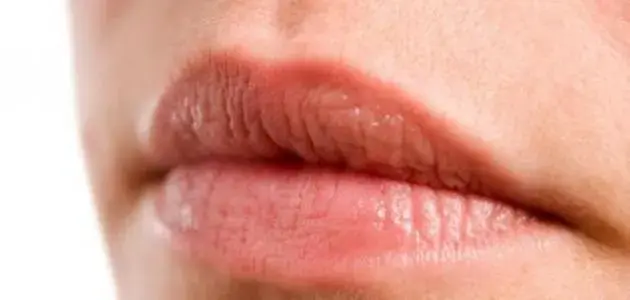Dry lips are a common issue, especially during hot or cold weather. The skin on the lips is thinner and more sensitive than other areas of the body, making them more prone to dryness, cracking, and peeling. Factors such as sun exposure, cold, and dry air increase this vulnerability. Unlike other skin areas, lips lack oil glands, which contributes to their tendency to dry out. Loss of moisture, whether from weather conditions or habits like constant licking, can worsen the problem, as saliva actually strips moisture away from the lips, leading to more dryness.
Dry Lips and Vitamin Deficiency
Poor nutrition, particularly vitamin deficiencies, is a key cause of cracked lips. People with restricted diets, such as vegetarians, should ensure they get sufficient vitamins. Those struggling with alcohol addiction are also at risk because excessive alcohol consumption interferes with vitamin absorption. Older adults should be cautious, as loss of appetite common in aging can lead to vitamin deficiencies. Deficiencies in B-complex vitamins—including folate and vitamin B3—can cause various skin problems like acne, rashes, dryness, and inflammation of the lips. These vitamins play crucial roles in metabolism, energy production, disease prevention, and maintaining healthy skin, including the lips.
Common Causes of Dry Lips
Several factors contribute to lip dryness and cracking, including:
- Allergic reactions: Certain foods such as mango, cinnamon, and citrus can irritate or cause itching when they contact the lips.
- Use of cosmetic and personal care products: Lipsticks, lip balms, toothpaste, mouthwash, and sunscreens may contain ingredients that irritate or cause allergic reactions.
- Medications: Drugs containing retinoids (a form of vitamin A), often used for skin conditions like psoriasis and acne, can cause lip dryness.
- Chronic skin and systemic diseases: Conditions like eczema, lichen planus, lupus erythematosus, Crohn’s disease, and sarcoidosis can affect the lips, leading to dryness and irritation.
- Environmental factors: Exposure to dry or cold weather and excessive sunlight can exacerbate lip dryness.
Preventing Dry Lips
Many believe lip cracking only occurs in winter, but neglecting lip care can cause dryness, peeling, or sores any time of year. Here are some tips to prevent and treat dry lips:
- Avoid peeling dry skin: This can cause bleeding, pain, slow healing, and increased irritation.
- Stay hydrated: Drink plenty of fluids and use a humidifier indoors to maintain moisture.
- Avoid allergens and irritants: Stay away from perfumes, dyes in cosmetics, and skincare products that may trigger reactions.
- Breathe through your nose: Mouth breathing can dry out the lips.
- Limit sun exposure: Protect lips from excessive UV rays to prevent cracking.
- Consult a dermatologist: If lip cracking persists despite regular use of moisturizers, seek medical advice. Persistent dryness might indicate a more serious condition, such as actinic cheilitis (a precancerous condition) or even cancer.
- Protect lips in cold weather: Apply moisturizing ointments and cover lips with a scarf when outdoors.
Natural Remedies for Moisturizing Lips
Several natural treatments can help soothe and hydrate cracked, dry lips:
- Honey: A powerful moisturizer with antibacterial and antioxidant properties that help prevent infection.
- Cucumber: Rich in vitamins and minerals, cucumber can improve lip hydration and appearance.
- Aloe Vera: The gel inside aloe leaves contains vitamins, minerals, antioxidants, and anti-inflammatory agents that soothe damaged skin.
- Green Tea: Packed with antioxidants, minerals, and polyphenols that reduce inflammation. Soak green tea in warm water and gently massage lips to remove dry skin.
- Coconut Oil: Offers moisturizing, softening, and antimicrobial effects. For enhanced hydration, combine with avocado oil, beeswax, olive oil, raw honey, or shea butter.
Leave a comment
Your email address will not be published. Required fields are marked *




